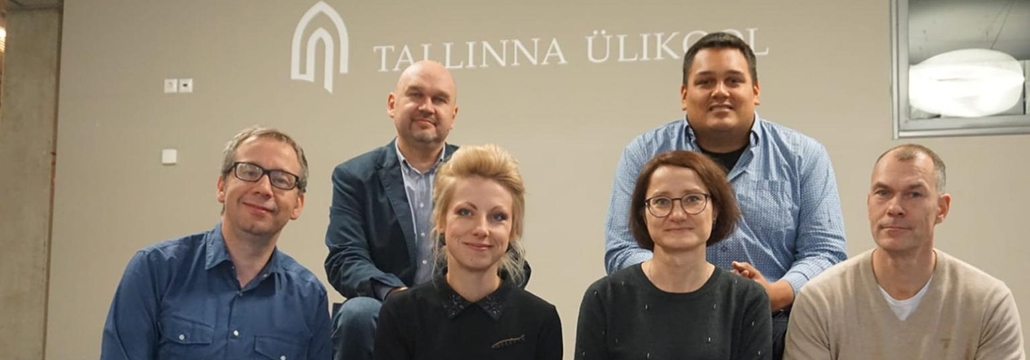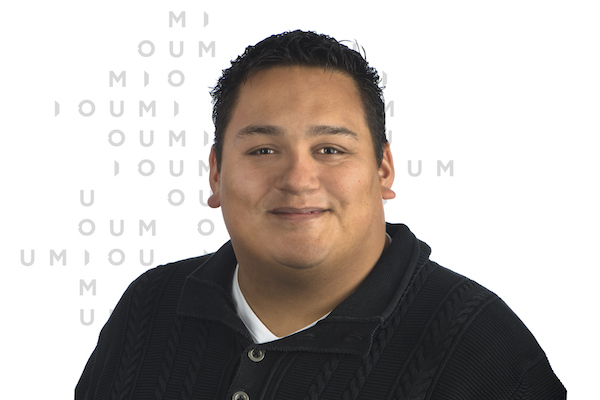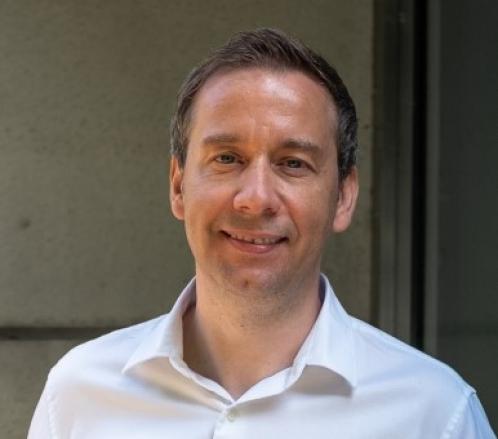Implementing Service Design Thinking at the highest level of organisations; that is the goal of the study module that the Department of Marketing & Supply Chain Management (SBE) and the Service Science Factory (UMIO) will co-develop. A consortium that also consists of Tallinn University, Stockholm School of Economics and design consultancy firm Brand Manual received an Erasmus+ Grant to realise this study module. On behalf of SBE and UMIO, Prof. Dr. Dominik Mahr and Damien Nunes are involved in the initiative. They explain what the project entails.
“As a consortium, we have submitted a proposal aimed at developing an executive study programme in the field of Service Design”, says Damien Nunes, who is (Strategic) Service Designer and Innovation trainer at UMIO’s Service Science Factory (SSF).
“In short, Service Design means developing new services or improving existing services using creative design tools. As a methodology, Service Design always starts with a customer-centric approach: who belongs to the target group, what needs do they have and how can we serve them better? Recognisable examples of Service Design results are the self-scanner at Albert Heijn supermarkets and the digital way of ordering that is standard nowadays at McDonalds.”
Creating awareness at a higher level
As Service Design is new to many organisations, they often do not know where to start. In addition, design disciplines are generally not represented in the highest layers of an organisation, while customer experiences do affect the entire organisation.
Nunes: “Therefore, we must create awareness at a higher level. That is why we are going to develop this study module for executives. It will be a programme at a strategic level, where you must be able to manage and inspire. Executives who will complete the programme, understand how to implement service design projects, what is needed for that and how they can inspire other teams to get started. They also know how to ensure necessary funding at the highest level. This will be a unique programme with a lot of depth; it will not just be another masterclass.”
Representatives of the consortium during the kickoff of the project in Tallinn. Maker of the selfie is Dominik Mahr, Damien Nunes is standing behind him.
Strong academic base with practical experience
Tallinn University is the initiator of the project and the main applicant for the grant. They decided to contact Prof. Dr. Dominik Mahr, because of his expertise in Service Innovation and Design at the Department of Marketing & Supply Chain Management of Maastricht University’s School of Business and Economics (SBE). This department is a worldwide authority in the field of Services. Stockholm School of Economics (the branch in Riga, Latvia) and design consultancy firm Brand Manual also joined the consortium.
“It is a nice combination of a strong academic base with the more practical experience of the Service Science Factory (SSF) and Brand Manual”, says Mahr, who is also Scientific Director of SSF. “Our department is top notch when it comes to service innovation, but that is not enough. We need to find out how it ties in with the actual problems that organisations have when it comes to Service Design. SSF helps us in making the course operational.”
“Although Tallinn University contacted our department, we would not be able to optimally participate without SSF, which is part of who we are”, Mahr continues. “With the combination of research, education and practice, we have a unique triangle at Maastricht University of which I am extremely proud. Ten years ago, we wondered: if we know so much about services, how can we bring that out to the world? That is how the idea of SSF came up. Ten years later, our department and SSF work closely together on innovative forms of knowledge creation and dissemination. People and the inspiration to develop new activities are the connectors. I am happy that it worked out like this, because SSF is shining brighter than ever.”
Programme
The programme of the Service Design Study Module consists of six educational weeks that are spread over a period of six months. Each university organises two separate educational weeks, which means all participants travel to Maastricht, Tallinn and Riga twice. As part of the grant, each country will recruit six participating organisations, half of which must come from the public sector and the other half from the private sector. This creates a great mix for learning.
“We very much believe in the combination of learning with head, heart and hands”, explains Nunes. “This means that we will not only teach the necessary theory; we also let the participants experience the relevance of (Strategic) Service Design emotionally. In addition, we let them work on different personal and generic cases in which they apply their new learnings in practice. Their personal case work will already be the first organisational change that we hope to achieve through this executive course. That is why it is very important that we have a full buy-in from senior management to invest in this customer-centric transformation that is fueled by Service Design.”
Maastricht University’s contribution
In October this year, Mahr and Nunes were present at the kickoff of the project in Tallinn. Together with the other initiators within the consortium, they discussed the content of the study module. Maastricht University is responsible for week 3 and week 4 of the programme, in which the topics Strategic Service Design and the Future of Digital Services will be covered.
“For the two educational weeks in Maastricht we are responsible for the entire cycle”, says Mahr. “We will develop and teach the content on the two subjects. However, as we are a main content contributor to the project, we will also advise our partners on the other subjects. Furthermore, we try to bring in the more innovative, leading edge pieces by involving other colleagues from Maastricht University.”
Digital teaching platform
In addition to the study module, the consortium will also develop a digital platform. “We think it is important to create a free platform where people can teach themselves about Service Design”, says Mahr. “This platform will present all the teaching materials from the study module. As the participants will work on actual cases during the module and will apply them directly into their work practice, it is also our plan to add these cases to the platform. It will be very interesting to see how the different ideas and projects work out in the end. Did it turn out to be a success story or was it a failure? It is very useful to have many of these cases on the platform to see what works and what doesn’t. That will be a valuable output of this programme as well.”




